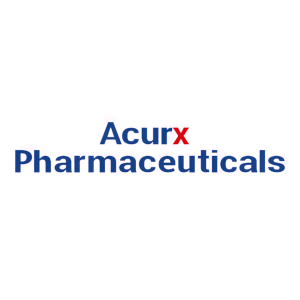Acurx Pharmaceuticals to Discuss Fourth Quarter and Full Year 2022 Financial Results and Provide Business Update
Acurx Pharmaceuticals (NASDAQ: ACXP) will discuss its financial results for Q4 2022 and full-year 2022 on March 16, 2023, at 8:00 a.m. ET. The call, led by CEO David P. Luci and CFO Robert G. Shawah, follows the successful completion of the Phase 2a trial of ibezapolstat, a new antibiotic for treating Clostridioides difficile infection (CDI). The trial showed 100% infection cure at the end of treatment. The subsequent Phase 2b trial is currently enrolling patients to compare ibezapolstat with vancomycin. This segment will further analyze pharmacokinetics and microbiome changes, potentially reducing CDI recurrence risk.
- 100% infection cure rate in Phase 2a trial of ibezapolstat.
- Phase 2b trial has commenced, allowing further evaluation of ibezapolstat.
- None.
Insights
Analyzing...
Date:
Time:
Toll free (
Conference ID: 13736887
About the Ibezapolstat Phase 2 Clinical Trial. The completed multicenter, open-label single-arm segment (Phase 2a) study is now followed by a double-blind, randomized, active-controlled, non-inferiority, segment (Phase 2b) at 28 US clinical trial sites which together comprise the Phase 2 clinical trial (see https://clinicaltrials.gov/ct2/show/NCT04247542). This Phase 2 clinical trial is designed to evaluate the clinical efficacy of ibezapolstat in the treatment of CDI including pharmacokinetics and microbiome changes from baseline and continue to test for anti-recurrence microbiome properties seen in the Phase 2a trial, including the treatment-related changes in alpha diversity and bacterial abundance and effects on bile acid metabolism.
The completed Phase 2a segment of this trial was an open label cohort of up to 20 subjects from study centers in
Phase 2a data demonstrated complete eradication of colonic C. difficile by day three of treatment with ibezapolstat as well as the observed overgrowth of healthy gut microbiota, Actinobacteria and Firmicute phyla species, during and after therapy. Very importantly, emerging data show an increased concentration of secondary bile acids during and following ibezapolstat therapy which is known to correlate with colonization resistance against C. difficile. A decrease in primary bile acids and the favorable increase in the ratio of secondary-to-primary bile acids suggest that ibezapolstat may reduce the likelihood of CDI recurrence when compared to vancomycin.
About the Microbiome in Clostridioides difficile Infection (CDI) and Bile Acid Metabolism
C. difficile can be a normal component of the healthy gut microbiome, but when the microbiome is thrown out of balance, the C. difficile can thrive and cause an infection. After colonization with C. difficile, the organism produces and releases the main virulence factors, the two large clostridial toxins A (TcdA) and B (TcdB). (Kachrimanidou, Microorganisms 2020, 8, 200; doi:10.3390/microorganisms8020200.) TcdA and TcdB are exotoxins that bind to human intestinal epithelial cells and are responsible for inflammation, fluid and mucous secretion, as well as damage to the intestinal mucosa.
Bile acids perform many functional roles in the GI tract, with one of the most important being maintenance of a healthy microbiome by inhibiting C. difficile growth. Primary bile acids, which are secreted by the liver into the intestines, promote germination of C. difficile spores and thereby increase the risk of recurrent CDI after successful treatment of an initial episode. On the other hand, secondary bile acids, which are produced by normal gut microbiota through metabolism of primary bile acids, do not induce C. difficile sporulation and therefore protect against recurrent disease. Since ibezapolstat treatment leads to minimal disruption of the gut microbiome, bacterial production of secondary bile acids continues which may contribute to an anti-recurrence effect.
About Clostridioides difficile Infection (CDI). According to the 2017 Update (published February 2018) of the Clinical Practice Guidelines for C. difficile Infection by the Infectious Diseases Society of America (IDSA) and Society or Healthcare Epidemiology of America (SHEA), CDI remains a significant medical problem in hospitals, in long-term care facilities and in the community. C. difficile is one of the most common causes of health care- associated infections in
About
Any statements in this press release about our future expectations, plans and prospects, including statements regarding our strategy, future operations, prospects, plans and objectives, and other statements containing the words "believes," "anticipates," "plans," "expects," and similar expressions, constitute forward-looking statements within the meaning of The Private Securities Litigation Reform Act of 1995. Actual results may differ materially from those indicated by such forward-looking statements as a result of various important factors, including: whether ibezapolstat will benefit from the QIDP designation; whether ibezapolstat will advance through the clinical trial process on a timely basis; whether the results of the clinical trials of ibezapolstat will warrant the submission of applications for marketing approval, and if so, whether ibezapolstat will receive approval from the
Investor Contact:
Tel: 917-533-1469
Email: davidluci@acurxpharma.com
![]() View original content:https://www.prnewswire.com/news-releases/acurx-pharmaceuticals-to-discuss-fourth-quarter-and-full-year-2022-financial-results-and-provide-business-update-301762075.html
View original content:https://www.prnewswire.com/news-releases/acurx-pharmaceuticals-to-discuss-fourth-quarter-and-full-year-2022-financial-results-and-provide-business-update-301762075.html
SOURCE







